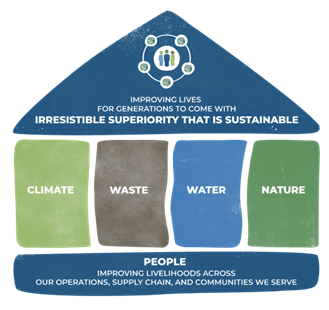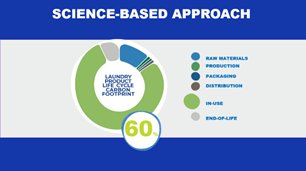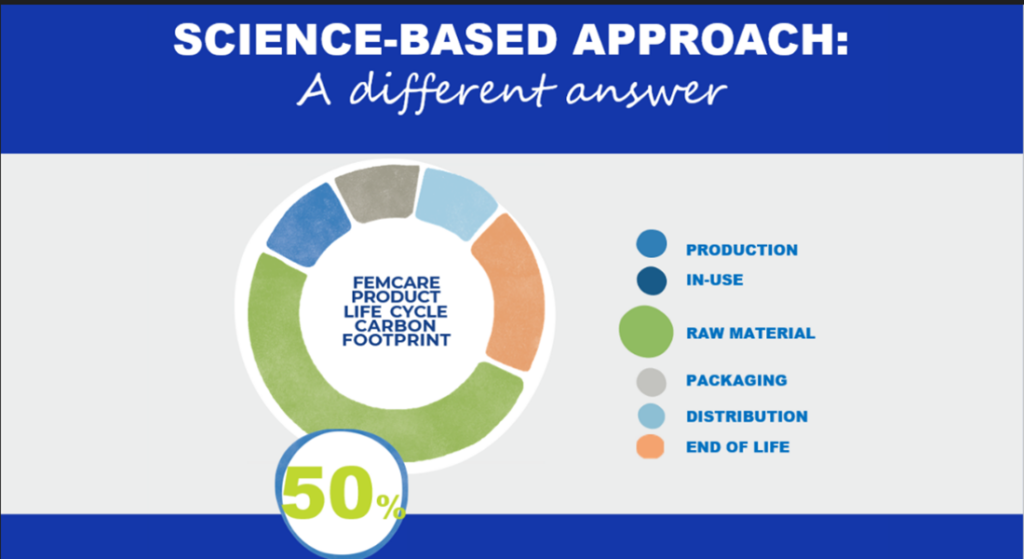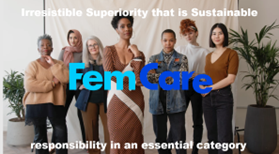In a world driven by innovation and sustainability, P&G has stood as a beacon of purpose, unwavering in its mission to touch lives and improve lives. What makes this purpose truly unique is its unyielding commitment to empower billions of consumers with products that make a daily impact, with no compromise.
At the heart of our business model is the pursuit of superior products that delight consumers while striving to minimize their footprint without any trade-offs on performance. To this end, we have selected the areas where we know we can make a tangible difference. And that’s how we defined P&G Ambition 2030, focusing on four pillars: Climate, Waste, Water, and Nature. We’ve set ambitious goals, including achieving net-zero carbon emissions by 2040, making 100% of our packaging recyclable or reusable, becoming water-positive, and protecting, improving, and restoring critical ecosystems.

Since 2010, we’ve made significant progress, with 57% reduction of our scope 1 & 2 GHG emissions, 79% of our consumer packaging designed to be recyclable or reusable and 100% 3rd party certified pulp.
P&G uses a scientific approach to prioritize where to focus its efforts, using the Life Cycle Assessment. The LCA is an ISO technique to assess environmental impacts associated with all the stages of a product’s life from raw materials to product manufacturing, packaging, distribution, the usage at home all the way to waste disposal.
For a Laundry detergent, thanks to a simplified LCA, we know that on average in Europe 60% of a detergent’s carbon footprint comes from heating the water*. To address this, we’ve focused on creating products that perform well even at lower temperatures. If everyone in Europe turned down the washing temperature from 40°C to 30°C we could save up to 3.5 millions tons of CO2 per year**.

Femcare is a category where the demand for irresistible superiority that is sustainable is even more pronounced. Women’s expectations are high because menstrual products that don’t perform well can have an immediate and broad impact on their daily lives. Research revealed that in Femcare, 91% of women won’t compromise on product performance for sustainability benefits.
Looking at the FemCare product lifecycle, the picture is very different vs detergents. More than 50% of the carbon footprint comes from raw materials, while production and packaging only contribute 10% each. Therefore, our strategy focuses on “REDUCE, REPLACE, REUSE.”

Our “REPLACE” strategy involves replacing virgin fossil fuel-derived plastics with recycled or bio-derived materials, significantly reducing the carbon footprint. We have made meaningful progress in this area, with 90% of our bags being made from 50% post-consumer recycled plastic, and all our cartons being 70% from recycled paper and 100% recyclable.
Our third strategy is to provide women with choices, including products to “REUSE”. That’s why we’ve introduced reusable menstrual Underwear, offering flexibility and an alternative solution that can be used again and again.
Every woman is different. They should be able to make choices to manage their periods effectively based on their lifestyles, needs and preferences – without compromising between protection, comfort, and sustainability. Having a range of high-performing options to choose from – pads, tampons, reusable products — enables them to live fully and freely, with confidence and vitality across every life stage reducing the gender gap.
Since the early 1900s, the launch of Femcare products have enabled girls and women to take control of their lives during periods. Nevertheless, menstrual wellbeing can restrict normal daily activity of every third woman, and it can hugely impact the way a woman can work. Recent research shows that nearly a fifth of women (23%) have taken time off work because of their period in the last 6 months, confirming dependable protection has never been more important. Accessibility is still a reality in Europe with up to 1 in 5 girls affected by period poverty – hindering their ability to go to school or participate in sports.
Responsibility in an essential category means providing superior, affordable products that are sustainable. “Sustainable” in the full meaning of the word, where the environmental aspect is as relevant as the social impact one.
Responsibility in our category transcends traditional product performance and extends to profound societal change: it’s about empowerment and supporting women in all life stages.
P&G’s commitment to Femcare sustainability reflects our purpose –
Empower girls and women with safe and responsible protection to live without limits at every life stage.
* Ariel uses Life Cycle Assessment (LCA) to understand the end-to-end journey of laundry detergent better and measure the environmental footprint it has on the planet at every stage. LCA shows that, on average, 60% of the environmental footprint of laundry comes from the in-use phase, which includes the electricity used to heat the water*. Consequently, lowering the wash temperature is the single most important thing you can do to reduce your laundry’s environmental impact.

